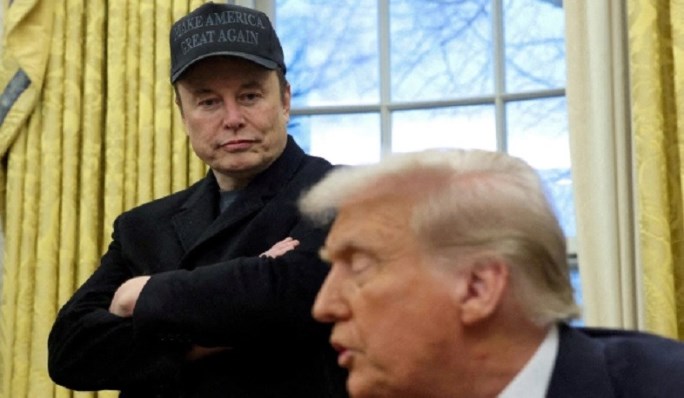With the upcoming July 4 election expected to determine the next leader, both leaders sought to sway voters with their distinct visions for the country’s future.
Sunak, representing the center-right party, emphasized the stability that a continued Conservative government could provide. He urged voters to support his “clear plan” for the economy, highlighting his successful stewardship that led to a significant decrease in inflation from its peak in 2022.
On the other hand, Starmer, aiming to solidify his position as the favorite, argued passionately for the pressing need for change in the UK.
Both leaders acknowledged the multiple challenges the country faces, ranging from deteriorating public services to a broken immigration system. However, when questioned about the funding required to address these issues, neither could provide a straightforward answer.
The polls currently indicate a double-digit lead for the center-left Labour party. To secure victory, Starmer must convince former Conservative supporters that Labour can be entrusted with the nation’s economy, borders, and security.
Sending asylum-seekers on a one-way trip to Rwanda
The televised debate, held at the sleek and futuristic ITV studios in Salford, northwest England, presented an opportunity for both leaders to connect with the audience.
However, their nervous demeanor may have left voters with the impression that they were choosing between two cautious and somewhat unexciting managers.
Throughout the debate, Sunak reiterated his belief that Labour’s DNA would lead to increased taxes. He also proposed sending asylum-seekers on a one-way trip to Rwanda to discourage dangerous journeys to the UK in small boats.
Sunak even suggested the possibility of withdrawing from the European Convention on Human Rights if the court obstructed deportations. On the other hand, Starmer focused on criticizing the Conservative party’s 14-year record, particularly the tumultuous final years that featured scandals involving money and ethics, leading to Prime Minister Boris Johnson’s removal.
Starmer asserted that the country could not afford to endure five more years of such chaos and emphasized the urgent need for change.
The personal dimension seeped into the debate when Starmer took a swipe at Sunak’s wealth, highlighting his own working-class background and questioning Sunak’s understanding of the financial concerns faced by ordinary people.
With all 650 seats in the House of Commons up for grabs on July 4, the party leader who can secure a majority, either alone or through a coalition, will become the next prime minister.
No knockout blow was delivered during the debate
Both contenders expressed their commitment to maintaining strong ties with the United States, regardless of the outcome of the November election.
They acknowledged the significance of the “special relationship” transcending the individuals occupying the roles of prime minister and president.
While no knockout blow was delivered during the debate, this outcome was seen as favorable for Sunak, who currently trails in the polls. Political science professor Rob Ford of the University of Manchester noted that this result would provide a morale boost for the Conservative party after a challenging period.
Although the impact of the debate remains to be seen, it has become a regular feature of UK election campaigns since its introduction in 2010. Multiple debates, involving various party leaders as well as the front-runners, are scheduled before polling day.
In a twist that shook Sunak’s hopes, populist figure Nigel Farage announced his candidacy for Parliament as the leader of the right-wing Reform U.K. party.
Farage, a key player in the UK’s decision to leave the European Union in 2016, is expected to draw support from socially conservative older voters, a demographic that the Tories have actively targeted.
The tension and drama of the UK election continue to escalate as the clock ticks closer to the decisive July 4 vote.
Check also;
- Mike Pence Declines To Endorse Trump For 2024 US Presidential Elections
- Turkey Elections: What To Expect From Undefeated Erdogan
Please use the button below to contribute to Newslex Point, Inc. using a credit card or via PayPal.

 Newslex Point News in Uganda, Uganda news
Newslex Point News in Uganda, Uganda news












